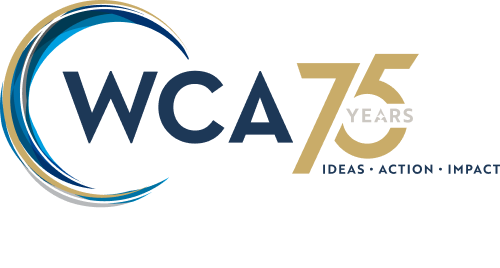As one of the hottest industries in the 914, the healthcare sector boasts thousands of job openings for entry-level and advanced professionals.
There’s good news if you are thinking of joining the healthcare field in Westchester County: healthcare is one of the hottest industries in the 914, and the demand for talented workers is on the rise.
Indeed.com posts 16,000 job listings weekly in Westchester County. Of those, “approximately 6,000 are healthcare-related and six of the top 10 employers in the county are in the healthcare field,” says Jason Chapin, director of workforce development at the Westchester County Association (WCA). Furthermore, according to the Bureau of Labor Statistics, healthcare jobs are expected to grow by 15% in the next decade, so if you are looking for a job with stability, security, and opportunities for career advancement, healthcare just might fit the bill.
“Since the pandemic hit, healthcare employers are scrambling to fill positions for various reasons, from the Great Resignation to ongoing health concerns with long-haul COVID,” explains Chapin. “It is a big challenge for employers.”
Diane Woolley, senior vice president and chief human resources officer at White Plains Hospital, echoes Chapin’s comments: “We are finding that the shortage of qualified workers continues to be a challenge, especially for positions that require specialized training, but not necessarily a four-year degree.”
Last year, there were 1,600 non-MD positions filled at White Plains Hospital and across the hospital’s affiliated outpatient practices. They anticipate more than 1,000 more positions to be filled this year. “Whether they are new graduates, changing careers, or re-entering the workforce, we are seeing candidates from all walks of life discover career opportunities here,” adds Woolley.
Likewise, Westchester Medical Center currently has many open positions, despite filling 2,000 positions last year. “The market for medical technicians is quite competitive right now, due to a shrinking pool of qualified candidates. Clinical laboratory technicians, MRI technicians, and licensed practical nurses are all in high demand here and everywhere,” says Daphne Michel, senior director of network recruitment at Westchester Medical Center.
New Programs Help Candidates Gain Skills
To address the labor shortage and help job seekers gain much-needed healthcare skills, several new local programs have been created in the aftermath of the COVID pandemic to help individuals obtain healthcare credentials that are affordable and accessible.
One such program is the Healthcare Talent Pipeline Program (HTPP) launched by WCA last year. Through a countywide grant, the program initially sought to train and recruit 100 unemployed or underemployed workers for positions such as clinical medical assistants (CMAs), medical administrative assistants, and certified nursing assistants (CNAs) at SUNY Westchester Community College (WCC) and Southern Westchester BOCES, with classes offered in Valhalla, Ossining, and New Rochelle.
“Every time we fill a job, it not only benefits the individual but also their family, the community, and the employer. Plus it boosts economic development in the region.” – Jason Chapin, Director of Workforce Development, Westchester County Association
“Many of these students were in lower-paying fields such as retail prior to entering the program,” Chapin says. The HTPP program offered free training, free books, stipends, and even training in tech skills, which many students lacked prior to joining the program. Through a partnership with STEM Alliance, a nonprofit group, participants in HTPP were eligible to receive Chrome Notebooks and even internet access to ensure their academic success.
With an average starting salary of $42,000 for graduates of the HTPP program and jobs filled at WCA member organizations such as WMC Health, White Plains Hospital, ENT & Allergy Associates, and senior living community The Osborn, the program has been expanded to recruit an additional 200 students through 2024 and to also serve Northern Westchester-based students through an extension agreement with BOCES of Putnam and Northern Westchester.
“Every time we fill a job, it not only benefits the individual but also their family, the community, and the employer. Plus it boosts economic development in the region,” says Chapin.
Another program that WCA has launched through a state grant is called the Healthcare Career Launch Project (HCLP) in partnership with WCC. This program is set to train 50 CNAs and CMAs. Employers have been invited to participate in HCLP classes and then provide an overview of the positions available within their organizations. At the conclusion of the program, participants are invited to an interview day, which is essentially a mini job fair created to accelerate the hiring process.
“Both grants cover a lot of the student’s expenses and really are a multi-pronged collective effort. Our overall goal is to create regional sustainable talent pipelines between job seekers, training providers, and employers,” sums up Chapin.
Aging Population, Retirements to Create More Demand
Dr. LaTasha Hamlett-Carver, who is division coordinator in workforce development and community education at WCC, also agrees that healthcare is a stable industry. With the population aging and many healthcare workers retiring, there is a high demand for skilled healthcare workers. WCC offers a multitude of programs for those who want to enter the industry with the most affordable tuition rates throughout the county.
One such popular program at WCC received support from the Westchester Workforce Funders Collaborative and first launched in 2020. The program consists of a job readiness program, followed by a monthlong externship at Montefiore Hospital in the Bronx and then occupational skills training for one to two semesters part-time.

Participants in the Healthcare Talent Pipeline Program train for in-demand professions such as clinical medical assistant, medical administrative assistant, or certified nursing assistant. ©Sherry Bruck, Harquin.
Positions that students trained for included CMA, medical administrative assistant, CNA, EKG/phlebotomist, and pharmacy technician at WCC’s Ossining Extension Center. A new cohort is set to start the program this summer.
Another program through WCC is an apprenticeship training program at Cabrini of Westchester in Dobbs Ferry, where students can obtain a CNA degree for free with funding from union local 1199. In this hybrid class setting, students who complete the program gain dual certification for New York State and federally, plus a full-time job with union benefits.
Last year, more than 350 students enrolled in various healthcare programs at WCC’s Ossining location. Because students come from various points of entry, flexible schedules are key, with classes offered in the evenings as well as daytime hours. WCC is also set to open a healthcare lab in Mount Vernon this fall. “We wanted to provide better access to the southern part of the county and even students from northern parts of the Bronx,” explains Dr. Hamlett-Carver. The lab will offer training for all of the same positions that the Ossining location offers.
These healthcare careers offer on average $21–$26 per hour, which is a higher wage than many of the program’s participants have earned in previous jobs. Entry-level salaries for CMAs are approximately $37,000 and phlebotomists can earn approximately $39,000 in an entry-level position within the Hudson Valley, according to the New York Department of Labor.
The demand for these challenging yet rewarding jobs is projected to only grow in the next decade, making healthcare an attractive career choice for those seeking job security in an industry that needs dedicated workers around the clock.


